 400-076-6558智领未来,外贸超级营销员
400-076-6558智领未来,外贸超级营销员
 400-076-6558智领未来,外贸超级营销员
400-076-6558智领未来,外贸超级营销员

In the foreign trade of machinery and equipment, the reason why you feel that the customer has "suddenly stopped responding" is often not a product problem, but because you have not figured out that you are not really trying to persuade an individual, but an entire purchasing decision chain.
| Mechanical Industry Tips | |
| Machinery Industry Prospect Analysis | 2026 Global Machinery and Industrial Equipment Industry Outlook: 5 Opportunities and 3 Risks |
| Predicting the hottest products in the machinery industry | The machinery export products with the greatest growth potential in 2026: automation equipment, packaging machinery, pumps and valves, machine tools... Which will take off? |
| Website building for the machinery industry | Foreign Trade B2B Industry Guide: Why should the grain and oil machinery and equipment industry build an independent website? |
| Customer acquisition in the machinery industry | High customer acquisition costs and slow conversion rates in the machinery export market? Intelligent B2B marketing solutions for foreign trade: Inquiries surge by 600%, costs decrease by 80%. |
Behind every piece of machinery, there are often at least three key roles:
Engineer (Technical Engineer): Technical evaluator
Purchasing: Risk and Compliance Controller
Owner/General Manager: The final decision-maker
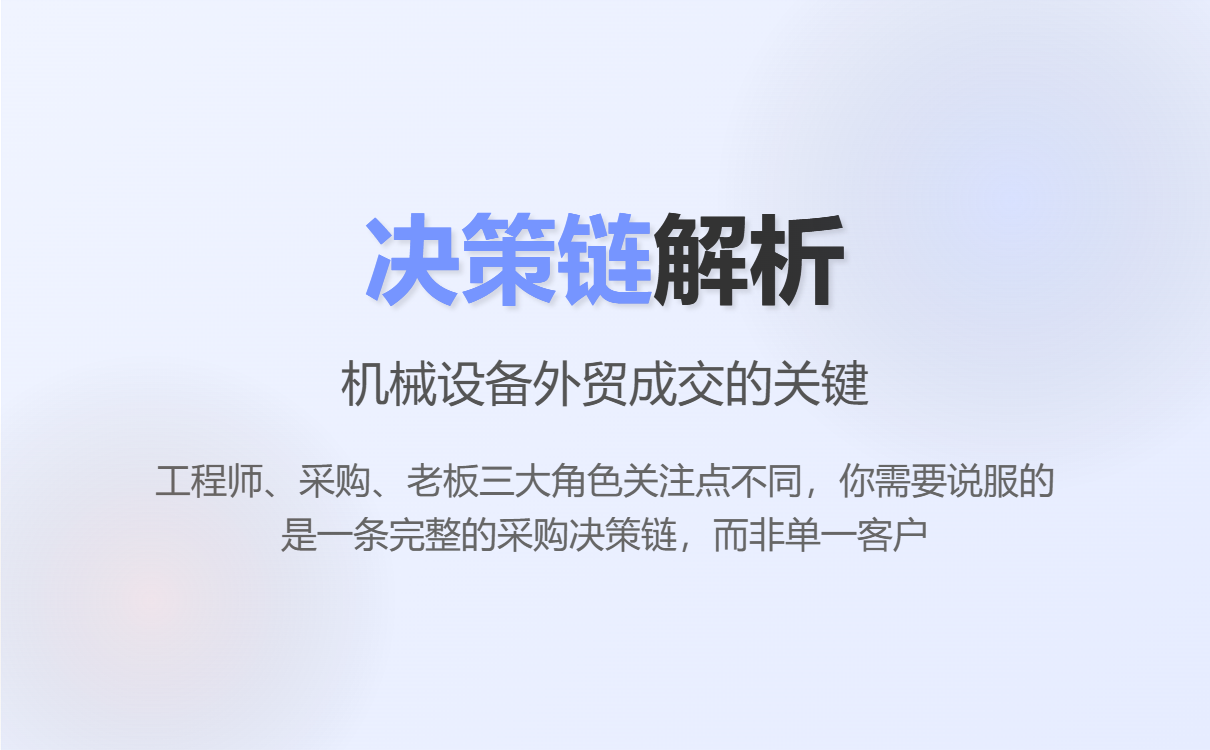
Each character has different focuses, different language systems, and different concerns about risks.
You're right, but they might not agree; you've explained things clearly, but that's not what they're looking for at all.
The following explanation of the decision-making chain, from the perspective of someone in foreign trade, will give you more confidence in your negotiations.
70% of machinery and equipment transactions depend on engineers.
Engineers are the most "picky" people; they are usually the key people in technical evaluation and initial screening .
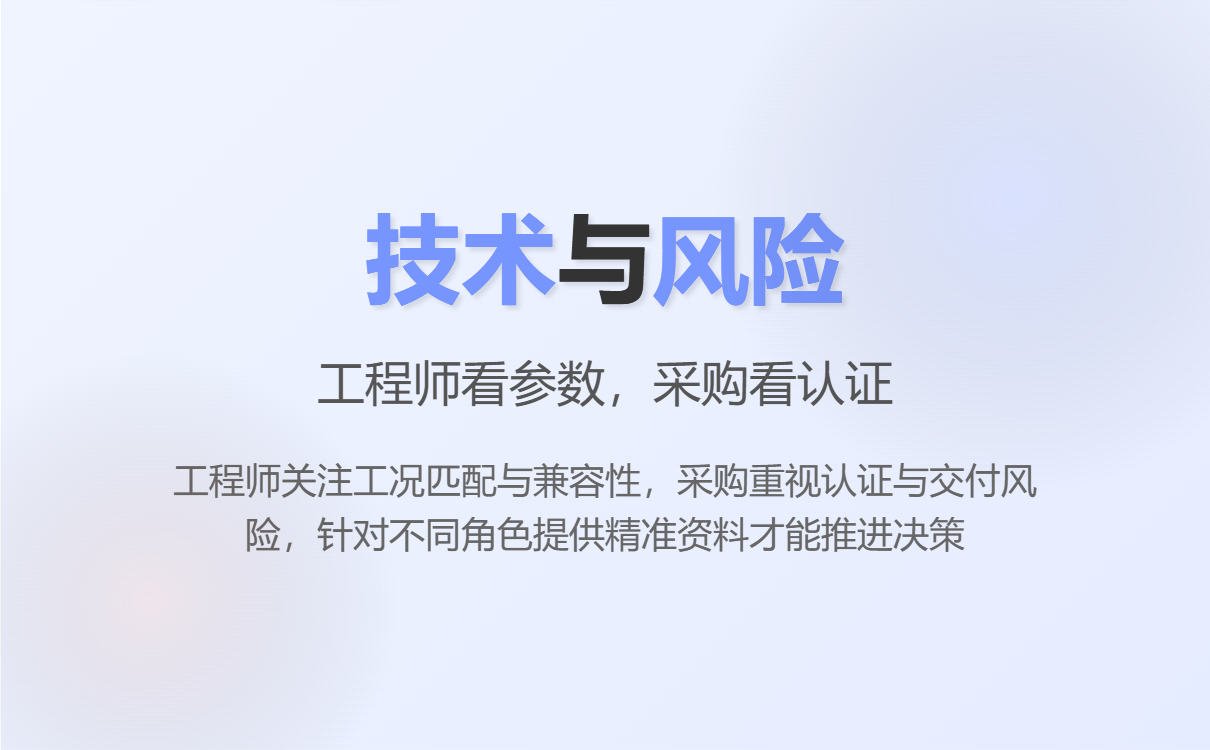
Does the application meet the requirements?
workload
Environmental conditions
Key parameters such as speed, accuracy, torque, and lifespan
Compatibility (with existing production lines, PLCs, fixtures, etc.)
Materials & Design
Material grade
Structural design
Process error control, durability
Technical documentation completeness (Tech Docs)
2D/3D drawings
Technical Specifications
Electrical diagrams, exploded diagrams
Installation Instructions
After-sales issues that can be resolved (Maintainability)
Standardization of vulnerable parts
Repair time
Technical response speed
Ten sentences from you are not as effective as providing an engineer with a set of technical documents that they can use.
Required materials:
| Data type | The value of an engineer |
|---|---|
| Tech Whitepaper | Showcase your design logic and testing/verification process. |
| Application Sheet | Quickly determine compatibility |
| CAD data package (PDF + STEP) | Help them conduct internal assessments |
| Test Report / Experimental Data | Improve credibility |
| Industry Case Studies | Reduce the cost of technology trial and error |
Tip : Engineers don't like marketing rhetoric; they only believe in "parameters + experiments + data".
The procurement process will only begin when the engineer says "yes".
Purchasing is about risk management ; they don't care how advanced your machines are, but rather:
Can it be delivered on time?
Are the quality and certification standards compliant?
Is the after-sales service reliable?
Are the payment methods and terms guaranteed?
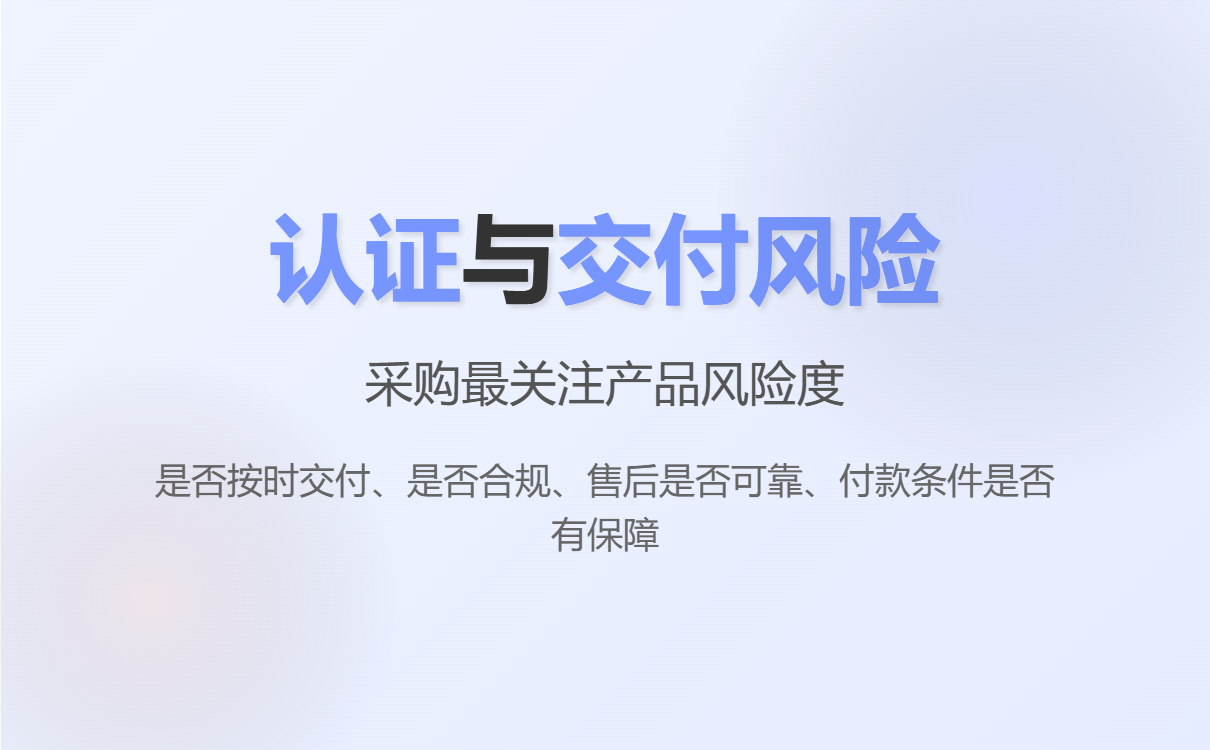
Different countries have different requirements:
CE, UKCA
ISO series
FDA (Food/Pharmaceutical Related)
UL, CSA (North America)
ERP and energy efficiency certifications
If you can proactively provide certification reports, the purchasing department will immediately feel "60% more at ease".
Procurement staff are most afraid of being blamed internally; your delivery capabilities determine whether they dare to push forward.
You must clearly provide:
Delivery time
Production scheduling mechanism
Prototype cycle
Spare parts supply system
Packaging/Shipping Standards
Delay risk warning mechanism
The purchasing department will ask very detailed questions:
IQC → IPQC → FQC Process
Outbound inspection report
List of key component suppliers
Factory Inspection/FAT Process
Payment methods (LC / TT / DP)
Warranty period
Marine insurance
Liability for breach of contract
Price protection clauses (e.g., for long-term partnerships)
Procurement doesn't like surprises; they prefer that "all risks are written in the documents."
The bosses don't concern themselves with technical details or delve into delivery processes. They only ask one thing:
"If I buy this equipment, will it save me costs/improve efficiency/differentiate me from the competition?"
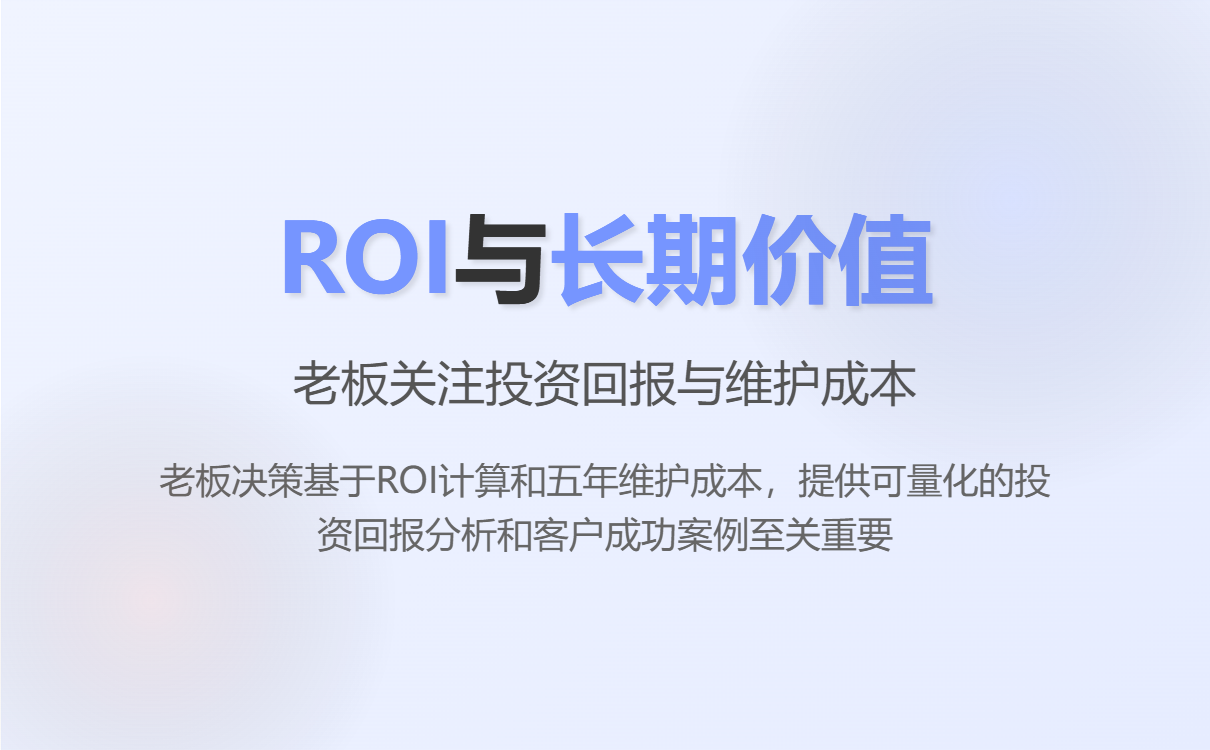
They would ask:
How much manpower can this equipment save?
Is it flexible to change production lines?
How much production capacity can be increased?
How many months is the payback period?
You must prepare a quantifiable ROI formula :
ROI = (Reduced labor costs + Increased production value + Reduced scrap rate) ÷ Investment cost
The boss won't be swayed by your one-time price offer; they look at:
Consumable costs
Failure rate
Downtime losses
Repair time
Spare parts price
Annual maintenance fees
Your point about "cheap price" is irrelevant; what he wants is "low operating costs."
What the boss always cares about is:
Is your company stable or not?
Will it still be there five years from now?
Can you support capacity expansion?
Especially for multinational orders, they value "partnerships" even more.
For example:
Does it comply with ESG?
Can it enhance the company's brand strength?
Whether to avoid safety accidents and reputational risks
The boss wants to "make the company stronger, safer, and more controllable".
Most foreign trade salespersons fail because:
The engineer did not receive the technical documents
The procurement process lacked certification and procedures.
The boss didn't see the ROI.
You need to use the right information to make decisions without pain for any role.
Required documents:
Technical White Paper
Parameter table
Operating Condition Adaptation Guide
Selection Manual
3D image file
Test Report
Case comparison data
CE / ISO and other certificates
Outgoing Inspection Form
Delivery control process
Quality Traceability Process
Compliance assurance documents
ROI Measurement
Customer success stories
Cost-saving model
Three-year maintenance cost model
Cost comparison with competitors
The quality of your materials determines how quickly you close a deal.
Machinery export customers place particular emphasis on whether the "data system is standardized".
Many companies have their documents scattered locally, with inconsistent PDFs and messy versions, making them look unprofessional.
Solution (natural and not excessive):
These technical documents, certification files, and case studies can be managed centrally using ABK's intelligent website building knowledge base module , allowing customers to view all the information on a single page. For the machinery industry, this is a very effective way to enhance professionalism and trustworthiness.
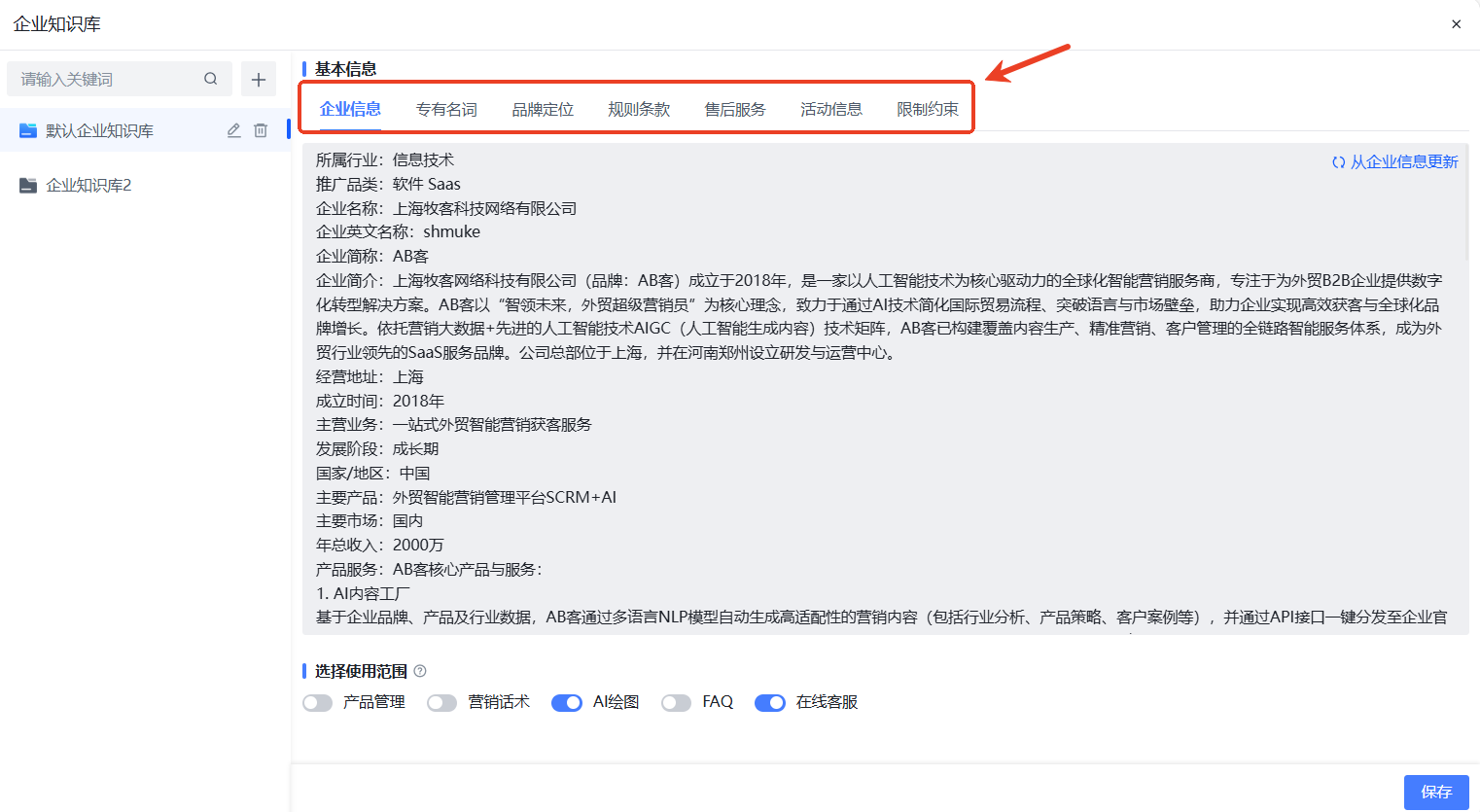
The logic of foreign trade in machinery and equipment is not "one customer," but rather:
The engineer decides whether it can be used.
The purchasing decision determines whether or not to buy.
The boss decides whether it's worth buying.
What you need to do is not "push the product", but "drive the entire decision-making chain".
.png?x-oss-process=image/resize,h_100,m_lfit/format,webp)
.png?x-oss-process=image/resize,h_100,m_lfit/format,webp)

.png?x-oss-process=image/resize,h_100,m_lfit/format,webp)
.png?x-oss-process=image/resize,h_100,m_lfit/format,webp)
.png?x-oss-process=image/resize,h_100,m_lfit/format,webp)
.png?x-oss-process=image/resize,h_100,m_lfit/format,webp)
